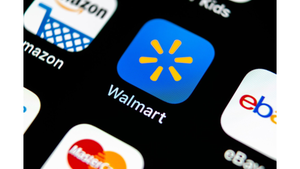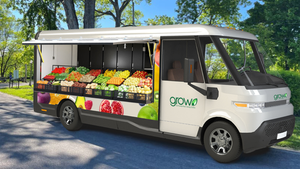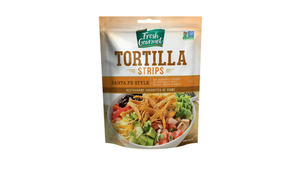LIQUOR LICENSES ARE ON TAP IN OHIO
COLUMBUS, Ohio -- Kroger Co. is among the retailers seeking licenses to sell liquor as the Buckeye State eliminates state-run liquor stores.Kroger opened an 800-square-foot liquor department in its store in the Cincinnati suburb of Hyde Park in late February. It also operates a liquor department in its Blue Ash, Ohio, location.Ohio is scheduled to complete its shift from state-run to privately run
April 8, 1996
RICHARD TURCSIK
COLUMBUS, Ohio -- Kroger Co. is among the retailers seeking licenses to sell liquor as the Buckeye State eliminates state-run liquor stores.
Kroger opened an 800-square-foot liquor department in its store in the Cincinnati suburb of Hyde Park in late February. It also operates a liquor department in its Blue Ash, Ohio, location.
Ohio is scheduled to complete its shift from state-run to privately run liquor stores by June 1997. The stores only sell hard liquor and spirits, not beer, wine or other low-alcohol products.
Officials at Kroger could not be reached for comment, but a state spokeswoman said the change in the law will open up additional sales opportunities for supermarket operators.
"Consumers will have longer hours and one-stop shopping under private ownership, while the retailers will make a 6% commission on retail sales and 4% on wholesale sales," said Patty Haskins, a spokeswoman for the Ohio Department of Liquor Control here.
Though supermarkets will now be allowed in the liquor business, there are limitations.
"Any one individual or entity cannot have ownership of more than four agencies per county, nor eight per state. That was purposely done so that large chain operations could not have a lock on the business," she explained.
"The private agents do not own the liquor and spirits inventory. The state of Ohio still owns the inventory, but the retailers have to pay their own rent, utilities and payroll. They are just receiving a 6% commission on retail sales and 4% on wholesale sales. No one just selling liquor would be able to operate under those commissions. That is why they must sell other products."
She said, "The state is still setting the prices and the agent is not marking up or down the prices. Our retailers are basically just serving as the state's sales agents on a commission basis."
Advertising is also strictly controlled, with retailers only allowed to advertise that they are a state liquor agent. Distillers and distributors can advertise the product with price information.
Liquor can be sold anywhere in the store, but has to be in a place where it can be monitored. Hours are also strictly enforced, with no liquor or spirit sales on Sundays. Stores can sell liquor between 9 a.m. and 10 p.m. on other days.
About the Author
You May Also Like




